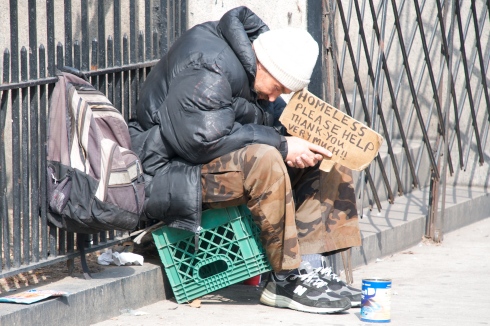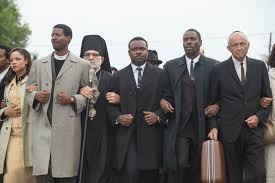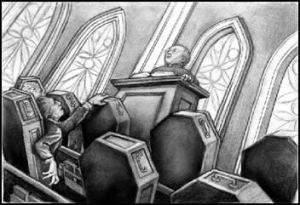 A number of years ago, not long after I moved to Seattle, I was walking through the Capitol Hill neighborhood and a young woman with a sign asking for food caught my eye. I asked her if she would like to eat with me, and she said yes, so we went to Magic Dragon for some wonderfully gross pseudo-Chinese food. This woman’s story seemed to be homelessness’ greatest hits. Her mother was a heroin addict, she was gang raped by some of her mom’s friends at 15 and ran away not long after. She subsequently got addicted to heroin and had just recently gotten herself clean. She was working to get some of her friends clean and trying to get money to go to Hawaii, where she presumed it was a lot better to be homeless since the weather was so much better. Two things she said have stuck with me ever since.
A number of years ago, not long after I moved to Seattle, I was walking through the Capitol Hill neighborhood and a young woman with a sign asking for food caught my eye. I asked her if she would like to eat with me, and she said yes, so we went to Magic Dragon for some wonderfully gross pseudo-Chinese food. This woman’s story seemed to be homelessness’ greatest hits. Her mother was a heroin addict, she was gang raped by some of her mom’s friends at 15 and ran away not long after. She subsequently got addicted to heroin and had just recently gotten herself clean. She was working to get some of her friends clean and trying to get money to go to Hawaii, where she presumed it was a lot better to be homeless since the weather was so much better. Two things she said have stuck with me ever since.
- She told me that what really gets her is when people walk past her like they don’t see her, like she is invisible. Even eye contact reassured her of her humanity, kind words meant the world to her.
So often, we shuttle past the homeless because we don’t want to give to them or (and I think this is actually an and) because we can’t handle looking at them because they expose a lot about ourselves. The homeless people around us expose that we really do have a lot and we really aren’t willing to share. They expose our fears that we, too, aren’t too far from where they are. Were it not for a supportive family or a job or a variety of other things (things that amount to privilege), we, too could be on the street. Also, I think that we believe if we don’t look at the homeless, we won’t feel like a jerk for not giving to them. Or maybe that’s just me. I know that, for me, every time I walk past a homeless person, I hear Jesus in my head saying, “That which you did not do to the least of these, you did not do to me.” I deeply feel like I am ignoring Christ when I walk past a homeless person, like I have just denied giving food to a God who is often found in the weakness, the need, and the pain of others.
2. She told me that she gets why people don’t want to give homeless people money because they might spend it on alcohol or drugs. However, for her and some of her friends, drugs are how they get through the day. Without a strong support system, a safe place to stay, the option of psychological care and rehab, drugs numb the sting of life, the sting of homelessness, and fog the brain so that the trauma of your past impedes less on your present.
In the past few months, I have begun building relationships with the homeless people who sleep on my ministry property and my understanding of this have increased 10x. One day, a chronic alcoholic who sleeps out there came in really upset. Turns out the other guy out there with him had been doing heroin. I didn’t get why this pained him so much until he began to tell me his story. He was removed from his mother’s care as a baby because she was a heroin addict. He was in the foster system for the rest of his life, and experienced neglect and abuse in many of the homes that were supposed to care for him. He now fears living inside because of all of the bad things that happened to him in houses and drowns his pain with alcohol.
I ran into him today in front of the Safeway and he was shaking uncontrollably. I asked him if he had the shakes and he said, “Yeah. Withdrawal.” I went inside and bought him a beer. At that point, the beer was medicine for him. After you reach a certain point with alcohol, quitting cold turkey can kill a person. The figures are 2-5% of people going through alcohol withdrawal will die from it, but even without death, a person can have seizures, and delirium tremens — and the worse your drinking has been, the more likely bad things will happen (fun fact: this does not happen with Heroin withdrawal. It will suck, but it will not physically kill you). And experiencing DT in the past makes it more likely you will die from it in the future.
Most of the guys around my building who are homeless have some kind of substance abuse problem. For the majority of them, its alcohol. For a few, its other drugs. For all of them, for better or worse, substance abuse is what makes life more bearable as they live out on the streets and try to forget their problems or use drugs/alcohol (which is a drug, but we make that distinction in our society for some reason) to deal with mental health conditions like PTSD, depression, or schizophrenia.
One of the guys who stays out front was making me really mad the other day. I needed him to leave and he just would not get up. I threatened to call the cops. Once he got up he came in and told me that he had been in a car wreck a few days ago and broke two ribs (he was clearly in pain) and had a heart problem from an infection he got while he was in the hospital for pneumonia. He was really sorry it took him so long to get up, but he was in a lot of pain and really just needed to lay down. The next day when I woke him up to move on he told me he just learned his father had died — he was trying to find a way to go north to help his family with the details and say goodbye. He found a way to leave today and gave me a huge hug.
The thing that kills me is how grateful they are because I simply treat them like fellow human beings. I’m not a saint. I’m not always nice. I kick them off the property regularly, I have words with them when they are drunk or on the odd occasion they are rude. But they always apologize and thank me — even as they walk off the porch into the rain. One day I almost lost it because I was kicking a guy out of the back (he had built a fort there, basically), and he kept thanking me. I was so confused as to why he would thank me and then it occurred to me that I was treating him like a human being, asking him to move his stuff, giving him a chance.
The guys who sleep on the front porch take great pride in the fact that they clean up after themselves. They found a broom somewhere and always sweep up after they leave in the morning. They bring in my sign when I forget. They protect me from other people who are being rude or belligerent, and they corral one another to clear out when the time comes. Every time they thank me, just because I am not being a dick.
There are groups that are trying to criminalize homelessness, towns that make things like being boisterous (Hi, Burien) illegal as a way to keep the homeless out of their area. This is insane. Making homelessness illegal will not stop homelessness. People don’t magically stop having mental health issues or addiction issues or get a job or a decent credit score or get an apartment because some city made a law that keeps people from being able to sit on the sidewalk. Homelessness is solved through a complex web of education and access to resources, and much of what is needed doesn’t exist. There are 60 beds a night for people who need to sleep it off, and a labyrinth to find your way through if you actually want to get treatment for addiction and can’t pay for it. Any given night in King County, there are around 4000 people sleeping on the street and 3000 shelter beds are full. Every year in King County 35,000 people lose the place they called home. This can’t be fought with laws that keep the homeless from sitting on the sidewalk or being boisterous.
We need more services. We need more services for people with mental health, substance abuse and general health issued. We need more transitional housing, more affordable housing, and more shelter beds (that aren’t bunk beds because while they make room for more beds, they also leave people open to attack and many won’t sleep in them). We need housing first policies that give a person shelter before asking they quit using, and a deeper understanding of the fact that within the larger homeless community there are lots of little communities and when people try to get shelter, that all too often means leaving the family they have acquired on the street.
In a nation, a county, a city as wealthy as Seattle, I shouldn’t have people seeking shelter under my eaves every night.
In a nation that has a tendency to claim Christianity as its faith, there shouldn’t be people hungry and on the streets, and I shouldn’t receive thanks from people just because I am not being awful.
Some of the people on the street are there because of bad choices — but most are not. And anyway, who among us hasn’t made bad choices? Who hasn’t taken a stupid risk? Just because some of us have the ability/support/resources to bounce back after a bad move doesn’t make others less than us. In fact, it should call us to remember that there but for the privileges I have go I.
TL;DR: sometime try talking to a homeless person, you may hear an amazing, heart wrenching story. Try to understand them; have compassion. If you’re a Christian, seriously think about that person being Jesus. Remember Matthew 25:31-46. And work like hell for public policy that provides services to ensure that, someday soon, this isn’t a problem at all.
Info on homelessness in King County: http://www.homelessinfo.org









